Chinese academic: Will China play the rare earth card against the US?
Despite China's dominance of the rare earth industry, it will not lightly play this card against the US, simply because it knows it is weaker than the US in various areas and the US can well retaliate. Economics professor Zhu Ying looks at rare earths, the weapon of last resort in China's defence against the US.
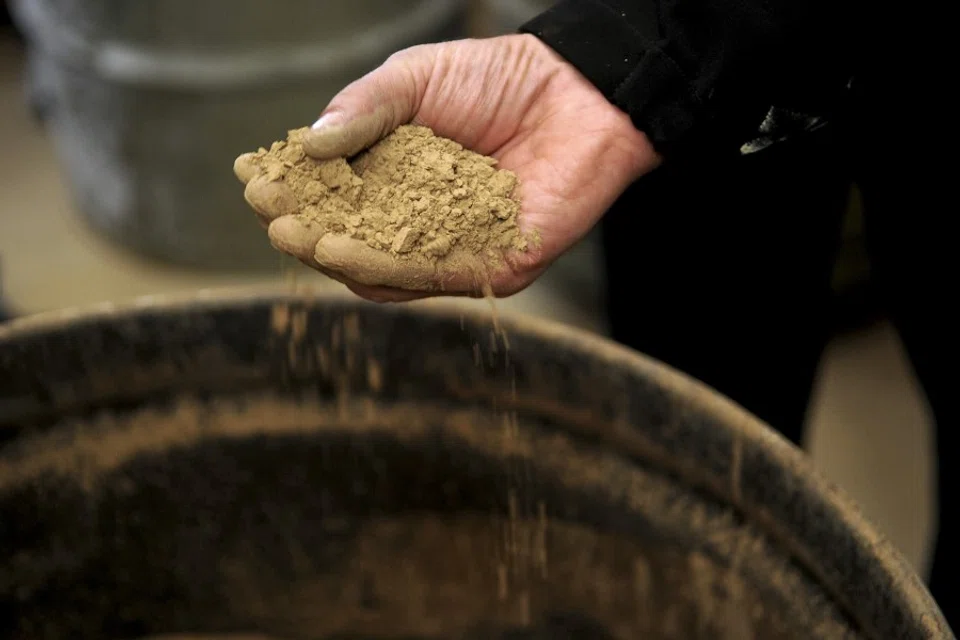
Rare earths is a sensitive topic of media interest since the China-US trade war. For example, when Chinese President Xi Jinping visited a rare earth company in Jiangxi in May 2019, it sparked media speculation that China would play the rare earth card to counter the US's trade war. And when the draft Regulations on Rare Earth Management for input was rolled out in January 2021, there was another wave of interest by Western media. The Financial Times quoted a Chinese government adviser who asked not to be identified: "The government wants to know if the US may have trouble making F-35 fighter jets if China imposes an export ban." Rare earths is indeed China's trump card in handling the US, but it is a difficult card to play.
China is number one in the world in terms of reserves, production, and exports of rare earths. A 2020 annual report by the United States Geological Survey (USGS) estimated that worldwide reserves of rare earths are approximately 120 million metric tons, of which 44 million metric tons are in China, or about 36.7%. Global rare earth element production amounted to around 210,000 metric tons in 2019, and China's output was about 132,000 metric tons, or about 62.86%. In addition, China's rare earth exports in 2019 totalled over 46,000 tons, according to a Global Times report.
More importantly, China seems to have a global monopoly on refining rare earths. The 2020 USGS annual report noted that China continued to dominate the global supply of rare earths. This is because it is practically the only country that can refine rare earths into valuable minerals, magnetic powder, and other high-value products. However, China's weakness is that it lacks advanced technology for value-added production, and is still selling raw materials rather than finished products. For example, Japanese companies import rare earths from China and incorporate it into steel, and then China imports this processed steel from Japan.
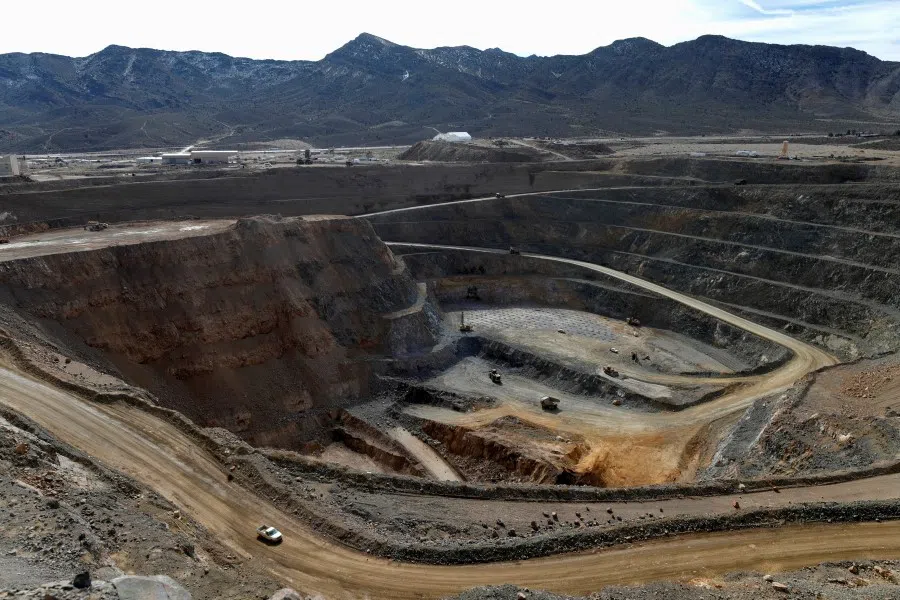
But no matter what, the US is dependent on China for rare earths, which is an Achilles heel for the US. According to the 2020 USGS report, the US is 100% dependent on imports of rare earth compounds and metals, of which 80% (between 2015-2018) was sourced from China. A 2016 report by the Government Accountability Office said rare earths are crucial to the US Army, noting: "Some defense applications with rare earths are coatings for jet engines, missile guidance systems, antimissile defense systems, satellites, and communication systems." For instance, the rare earth metals used in the US Navy's radars have to be imported, and it goes without saying what it would mean if China were to stop exporting rare earths to the US.
The US also contains a lot of rare earths, with enough supply for about 100 years.
Rare earth advantage was the US's to lose
Second, the rare earth issue is a classic example of how the US is shooting itself in the foot in this age of globalisation. The rare earth industry actually began in the US, when in 1949, three venture partners - Herbert S. Woodward, Clarence Watkins and P. A. Simon - found high radioactivity in mineral specimens from Mountain Pass. These almost miraculous elements that could change the characteristics of metals gave rise to an industry for rare earths and related products, and for nearly half a century, US companies Molycorp and Magnequench dominated the entire rare earth industry chain from mining to separation to refining. From europium used in colour TVs, to the permanent magnets used in US missiles, to the "invisibility" coat on F-117 stealth bombers - all these once came from these two companies.
The US also contains a lot of rare earths, with enough supply for about 100 years. The Mountain Pass mine in California currently supplies about 15% of global rare earth demand. In 2002, the Mountain Pass mine was closed because it was causing serious environmental damage, but the US leveraged capitalism and China's opening up to shift the polluting industries to China. More importantly, in early 2015, China removed export quotas on rare earths, as well as export taxes on rare earths from May 2015. Global rare earth prices plunged, and Molycorp went bankrupt, while Magnequench was earlier acquired by China.
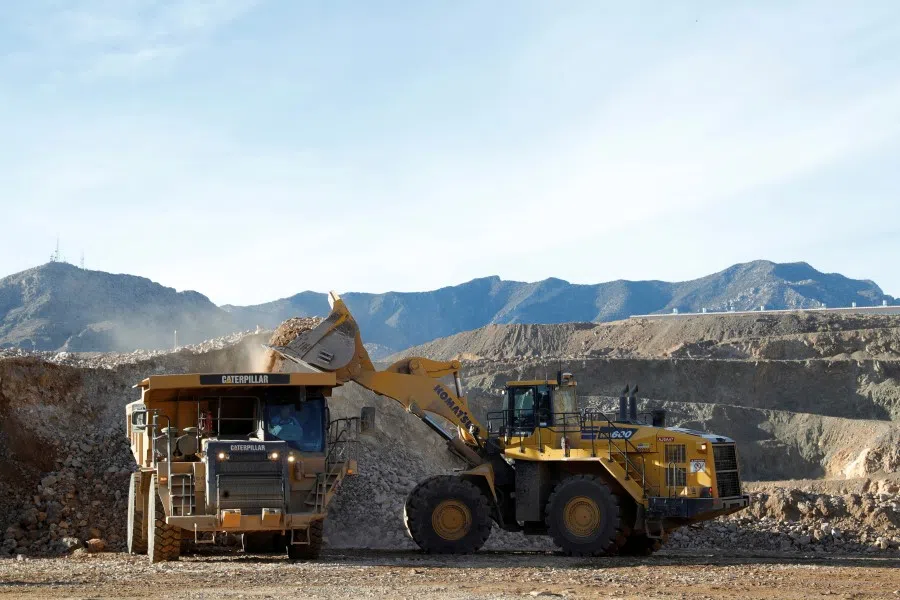
In 1995, the Sextant Group - backed by San Huan New Material and the China National Non-Ferrous Metals Import and Export Corporation - purchased Magnequench. If this happened today, the US would have stopped the transaction in the name of national security. But the Clinton administration of the time and the Committee on Foreign Investment in the United States (CFIUS) did not find "credible evidence" that the transaction might pose a risk to US national security. And in 2000, Magnequench shifted to China, and changed its name to Magnequench (Tianjin).
The painful reality is that the US no longer has rare earth processing capabilities.
In 2018, the China-US trade war prompted the US Department of Defense to see the importance of rare earths. In May 2019, the department announced it was seeking new federal funds to shore up domestic production of rare earth minerals and reduce dependence on China. And in June 2019, US company Blue Line Corporation and Australia's Lynas Corp signed a memorandum of understanding to set up a rare earth separation facility in the US, marking the US' rebuilding of its rare earth production capability.
Rare earth refining capabilities severely lacking in the US
The painful reality is that the US no longer has rare earth processing capabilities. Mining at Mountain Pass resumed in 2018, but refining and separation was not restarted. The annual ore production of MP Materials - which owns and operates the Mountain Pass mining and processing site - is shipped to China for refining, before it is sold back to the US. Another self-created headache for the US is that US law has become an obstacle to resuming rare earth production, because rare earth mining is no longer allowed on a lot of federal lands. Dr William A. Saxton, founder and chairman emeritus of US NGO Citizens for National Security, and previous director of the Palm Beach chapter of the Association of Former Intelligence Officers (AFIO), told Voice of America (VOA) in an interview that under current approval processes, it might take from seven to ten years to grant permits for mining and processing for a new site.
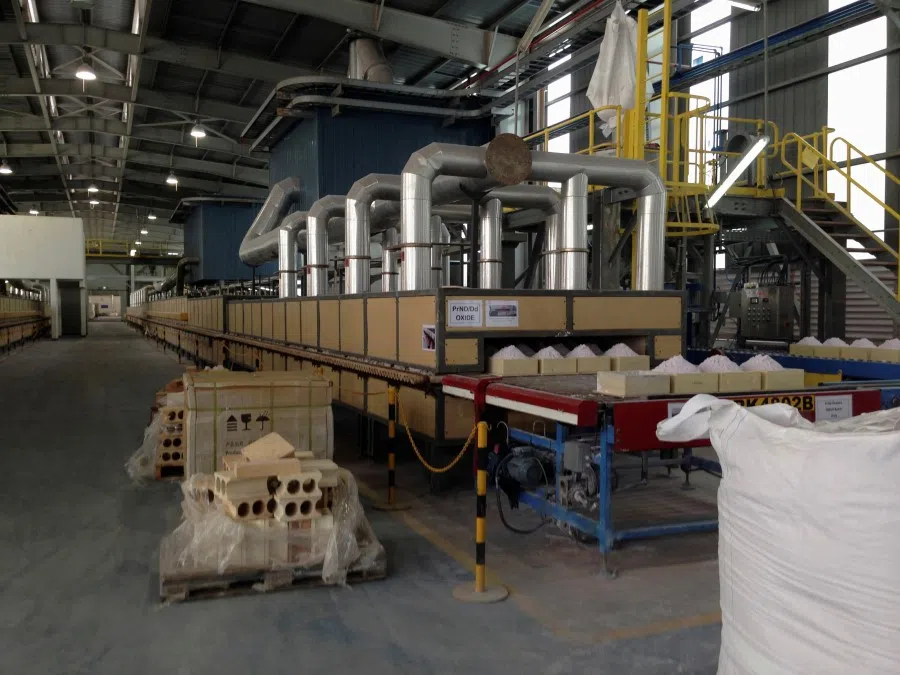
It is apparent that even if the US can revive its rare earth industry, it would be difficult to change its current dependence on China in the short term.
The reality is that China is far more reliant on the US than vice versa, and while both countries are weaponising their respective areas of dependence, China would not lightly take such measures against the US, because it would deliberate on the pros and cons.
China has the upper hand but fears reprisals
Again, if China were to sanction the US through rare earths, there would be retaliation. Rare earths are the US's Achilles heel, but that does not mean China will play that card, because China would think twice about US retaliation. The reality is that China is far more reliant on the US than vice versa, and while both countries are weaponising their respective areas of dependence, China would not lightly take such measures against the US, because it would deliberate on the pros and cons.
In the technology arena, apart from chips, China still has several weak spots. For example, China's COMAC C919 airplane is still dependent on key components supplied by the US, including the engine, power, and hydraulic systems, and even the brakes and wheels. The C919 uses the CFM LEAP engine produced by GE and France's Safran Aircraft Engines, and on 21 December last year, when the US Department of Commerce put 58 Chinese companies on a "Military End User" List, that threatened the survival of the C919.
On 16 February 2021, aviation analyst Richard Aboulafia of the Teal Group wrote a piece in Foreign Policy saying that China's aviation industry is still dependent on foreign companies for components and technology; without supplies from foreign companies, China's airplanes cannot take off. "After many decades and tens of billions of dollars, China's airliners are case studies in failure. A few dozen dysfunctional turboprops and 43 ARJ21 regional jets are the only products in the air, and they represent less than 0.5 percent of China's air service capacity." Currently, the C919 has not yet gained certification from the Federal Aviation Administration or the European Union Aviation Safety Agency.
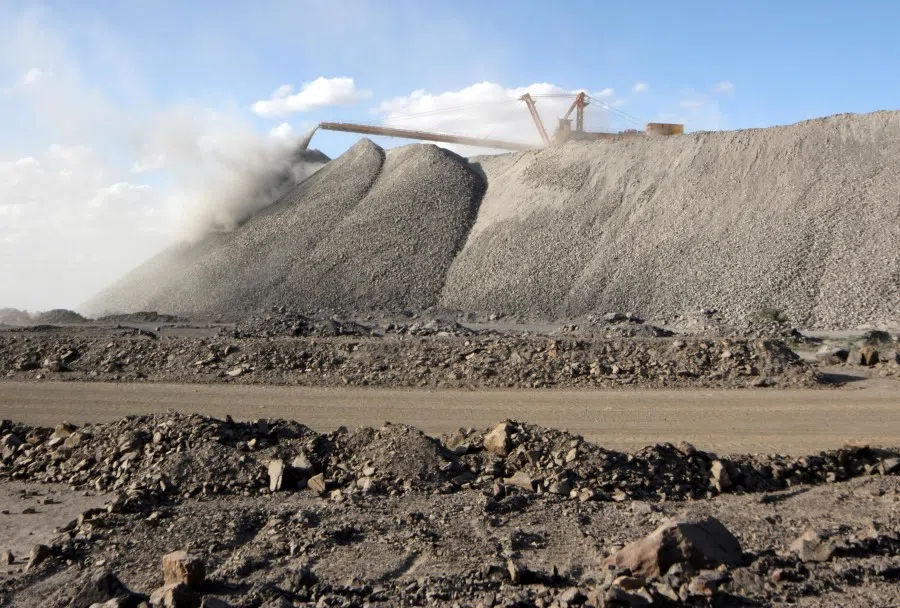
Aboulafia felt that without Washington's help, China's aircraft manufacturing industry would be in an extremely difficult position and the US would have more power in its tussle with China. The Biden administration is still considering whether to continue sanctions, which means that if China targets the US through rare earths, the Biden administration would continue its export controls towards China and it would be difficult for the C919 to progress.
Finally, there is now less chance of China playing the rare earth card against the US. The Chinese government did not do so in the trade war or Trump's new Cold War, so why do it with the Biden administration? Biden has declared "extreme competition" with China, but not "conflict", which is much milder than Trump's policy towards China. And while Biden has spoken out strongly against China's human rights issues, the actual measures taken are good for China: withdrawing a rule requiring American schools and universities to disclose their partnerships with Confucius Institutes, delaying a ban on US investments in companies with suspected ties to the Chinese military, and indefinite shelving of the TikTok sale. It is very unlikely that Biden will take extreme measures against China; the same can be said of China using rare earths against the US.
US allies to the rescue?
Besides, even if China does play the rare earth card, that will not kill the US military, because US allies also produce rare earths. Since the trade war began in 2018, the US has been setting up a global rare earth supply chain. In July 2019, Nikkei Asia reported that the US, Australia, and Japan were forming an alliance to break China's dominance in rare earths.
Up until recently, Canada did not venture into producing rare earths, despite possessing large reserves of unextracted rare earths and nearly one-third of the world's most advanced rare earth technology. It was announced in late 2020 that the provincial government of Saskatchewan would be pouring C$31 million into funding a rare earth processing facility to be up and running by 2022. Of the 63 rare earth projects tracked by Technology Metals Research (TMR), 20 are in Canada. Canada estimates its reserves and resources to be around 15 million tonnes of rare earth oxides.
The US started the rare earth industry and invented rare earth refining and processing technologies, so resolving its technical issues is not a problem; it just needs time.
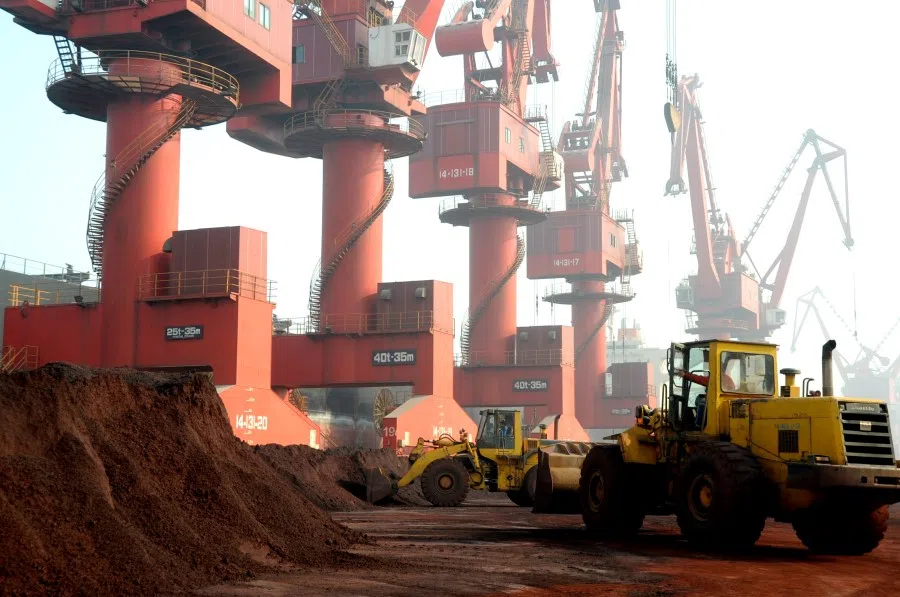
Australia is the world's largest producer of lithium. In 2018, the US and Australia signed an agreement for the mining and refining of rare earths. In September 2019, the Australian government released a report announcing 15 rare earth and critical minerals projects to challenge China's global dominance of the rare earth market. Ellen Lord, under secretary of defence for acquisition and sustainment under the Trump administration, said "one of the highest potential avenues [for the US] is to work with Australia."
In 2010, the dispute over the Senkaku/Diaoyu islands came up between China and Japan, and China restricted rare earth exports to Japan, which prompted Japan's resolve to break free of China's hold on rare earths. Meanwhile, global rare earth prices plunged, and several companies producing rare earths in China cut or stopped production in 2012. In April 2018, a research group from Waseda University and the University of Tokyo announced a study revealing that an estimated 16 million tons of rare earths - enough to fulfill global demands for hundreds of years - have been discovered in Japanese waters around the island of Minami-Tori-shima near Tokyo, with yttrium to last some 780 years and dysprosium for 730 years.
Looking long-term, rare earths are not "rare". Currently, the US urgently needs to resolve its rare earth refining and processing capabilities. The US started the rare earth industry and invented rare earth refining and processing technologies, so resolving its technical issues is not a problem; it just needs time.
In summary, not playing the rare earth card against the US would be a rational decision for China. And there is no need to do so, given that the Chinese government has expressed its willingness to cooperate with the Biden administration. Rare earths is just one strategic option for China, that is not to be used except as a very last resort.





